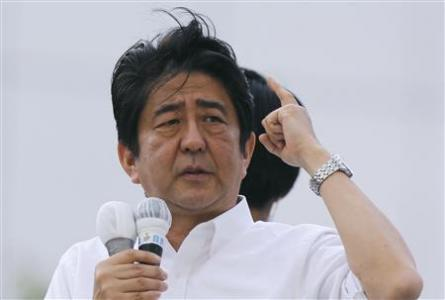Japan PMI Data For July Show Slowing Growth In Services And Composite Sectors

Japan's services sector, which has grown for nine months straight -- the longest ever in the series -- saw the pace of expansion falter in July, according to a survey by Markit, which follows the government's bleak forecast, released on Friday, for overall growth that is expected to be hampered by a proposed sales tax hike.
Japan’s Business Activity Index for the services sector fell in July to 50.6 from 52.1 in June, but stayed above the 50-point mark, which divides growth from contraction, after eight consecutive months of growth in new business and employment. The Composite Output Index fell to 50.7 in July compared to 52.3 in June.
“Whether the short period of recovery will continue remains to be seen; but with the latest data showing employment and new orders stagnating in July, the outlook is distinctly less positive than reported in previous surveys,” Claudia Tillbrooke, an economist at Markit said, in a statement.
“This sentiment was echoed by respondents, who voiced concerns regarding the impact of Abe’s three policy arrows and particularly the potential consequences of the increase in sales tax next April.”
Japan’s Prime Minister Shinzo Abe, in June, launched the “third arrow” -- a series of deregulation measures to boost investments -- that focus on boosting incomes by 3 percent every year, and on shifting resources to businesses with high-growth potential, including infrastructure, medical services and energy.
Abe is walking a tightrope in deciding whether to go ahead with the proposed sales tax hikes, slated for April 2014, and intended to rein in Japan’s gross public debt, which is projected to hit 230 percent of GDP by 2014.
But, many fear that it would severely stunt the nation’s short-lived recovery, as Japan's economic growth is projected to slow down to 1 percent in the fiscal year ending 2015 -- less than half of what was expected earlier.
According to the Markit survey, though large-scale public projects saw increased orders in July, they experienced “offset delays in budgets.”
And, the services sector failed to attract new business in July, which was the ninth successive month of higher input prices in the industry. Input prices grew at a faster rate in the manufacturing industry, continuing a seven-month growth sequence, as higher raw-material prices and fuel costs exerted inflationary pressure on both sectors.
Despite a growth in input costs, prices charged by Japanese service providers fell marginally in July, mainly due to demands from customers for lower prices. And, employment in the services sector ended an eight-month growth streak, to stabilize in July. The Composite Employment Index fell to its lowest level since October 2012, Markit reported.
© Copyright IBTimes 2024. All rights reserved.




















